In alignment with Thailand’s Sustainable Development Goals (SDGs) and the national agenda for sustainable urban growth, Rajamangala University of Technology Lanna (RMUTL) has strengthened its collaboration with local authorities, community organizations, and temple committees to address key planning and development challenges. This joint effort focuses on energy-efficient construction, revitalization of brownfield sites, and ensuring that local residents have access to affordable and inclusive housing.
Through the implementation of the university’s new policy on “Building Renovation and Energy Conservation Construction (B.E. 2568)”, RMUTL promotes sustainable design and responsible use of natural resources in all construction and renovation projects. The policy supports cooperation with municipal authorities in planning processes to achieve long-term, environmentally sound, and socially inclusive development.
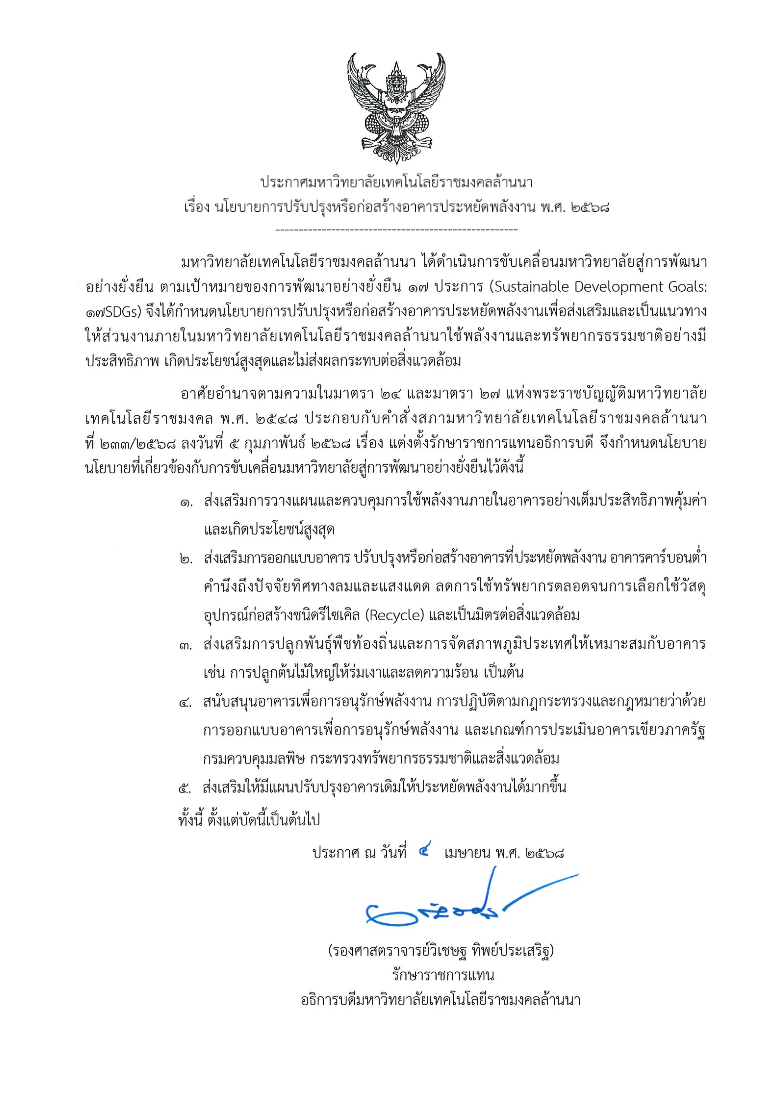
Working with local governments and regional planning offices, RMUTL helps develop design standards and construction models that prioritize community needs, environmental protection, and accessibility. The university’s ongoing projects demonstrate how academic institutions can play a leading role in local authority collaboration to shape sustainable and affordable urban environments.
Collaborative Sustainable Development Projects
1. The Hor Trai (Temple Library) Green Construction Project
In partnership with local temples and subdistrict administrative organizations, RMUTL designed and constructed a sustainable library that preserves cultural heritage while meeting modern green standards. The project integrates passive ventilation systems, solar energy, and natural materials to minimize energy use. Local craftsmen and students worked together under municipal guidance to ensure the design complies with planning and safety codes. The library also serves as a community learning space on environmental awareness and energy efficiency. This initiative demonstrates how collaborative planning between universities, local authorities, and communities can produce low-cost, sustainable infrastructure for public benefit.
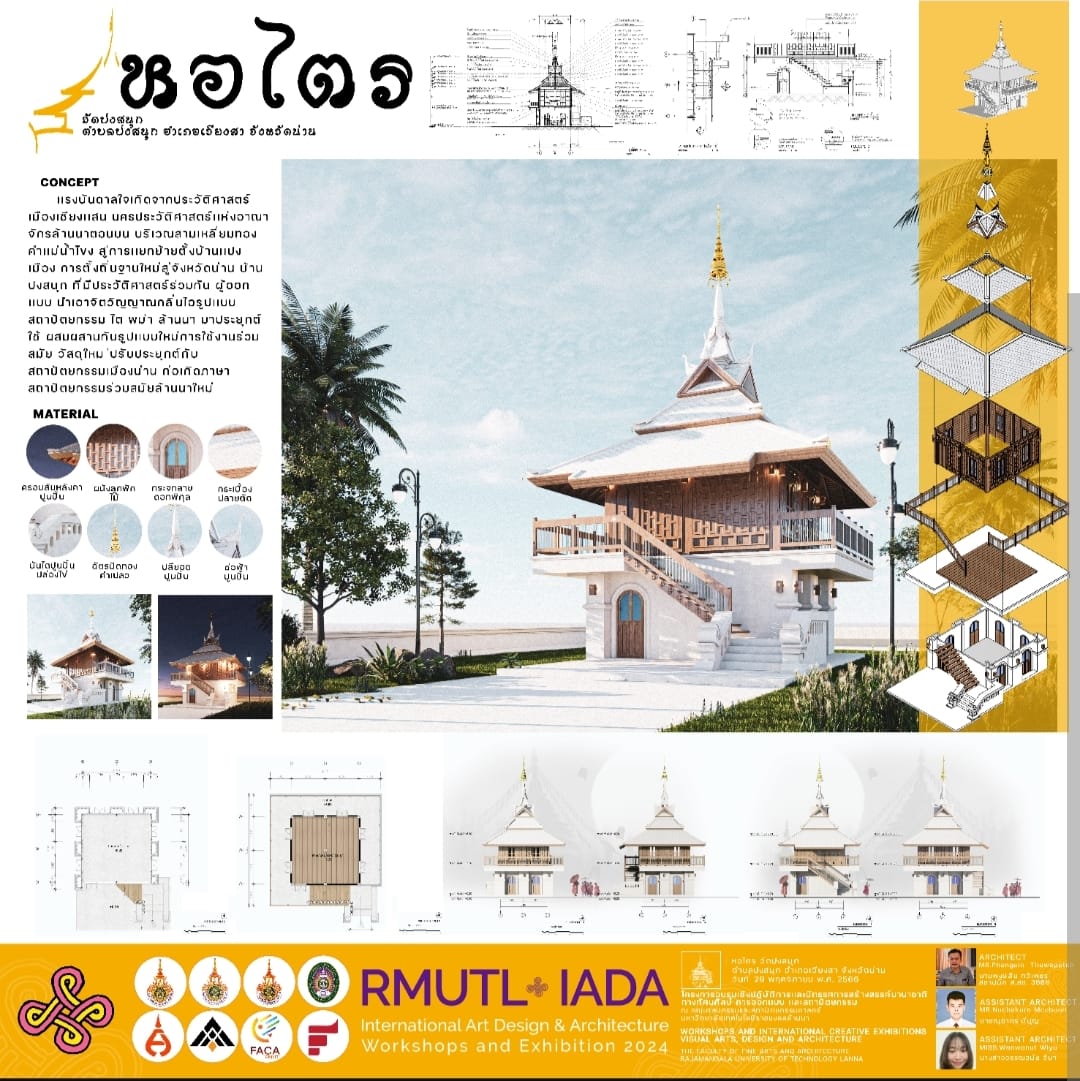
2. The Temple Development Project 2024
This project focuses on the restoration and planning of community temples as multi-functional public spaces, in cooperation with local governments and temple committees. Together, they assess land-use plans and design structures that improve accessibility, safety, and energy performance. Recycled materials and locally sourced products are prioritized to reduce costs and environmental impact. Municipal engineers work alongside RMUTL architects to ensure all developments comply with local urban development plans. The project strengthens community participation and supports the creation of inclusive, affordable spaces that serve cultural and social needs.

3. The Volunteer Renovation Camp FEB2025
In collaboration with district offices and local councils, RMUTL organizes annual renovation camps that mobilize students and community volunteers to improve public buildings and low-income housing. The 2025 program focuses on rehabilitating brownfield sites and underused structures, turning them into safe and functional community spaces. Recycled materials, such as reclaimed timber and eco-bricks, are used to lower costs and reduce waste. Local authorities provide construction permits, guidance on safety standards, and logistical support.
This initiative promotes affordable housing access while developing sustainable construction skills among students and residents.
4. The Universal Design Building Initiative at Sri Sangwan Campus
Conducted in partnership with provincial administrative organizations and disability advocacy groups, this project promotes inclusive building design standards. All facilities are planned according to universal design principles, including accessible walkways, ramps, and tactile guidance systems. Energy-efficient lighting, ventilation, and renewable energy systems are integrated into every stage of planning. Local authorities assist in reviewing plans to align with national accessibility and safety regulations. The initiative serves as a model for inclusive and sustainable public infrastructure that supports equitable access for all community members.
Building Stronger Communities through Collaborative Planning
RMUTL’s partnership with local authorities demonstrates how planning and development cooperation can create tangible social and environmental benefits. By working together to renovate old structures, develop brownfield sites, and promote sustainable new builds, RMUTL and its partners ensure that local residents have access to safe, affordable, and energy-efficient spaces. This integrated approach—combining academic expertise, municipal planning, and community participation—illustrates a practical model for advancing Sustainable Development Goal 11: Sustainable Cities and Communities in Northern Thailand.
Future Development and Green Innovation Infrastructure
Looking ahead, RMUTL is advancing several major renovation and new building projects in collaboration with local authorities and under the framework of sustainable urban redevelopment.
The upcoming projects include the renovation of the Civil Engineering Building 4 under the Faculty of Engineering, Chiang Mai Campus, the renovation of buildings at the Chom Thong Campus, and the refurbishment of the C3 and C4 classroom buildings at Doi Saket Faculty of Engineering.
Additionally, RMUTL is planning to redevelop the old Furniture Design Building and adjacent brownfield areas into a creative Co-Working Space and Innovation Institute, serving as the new Innovation and Technology Transfer Center.
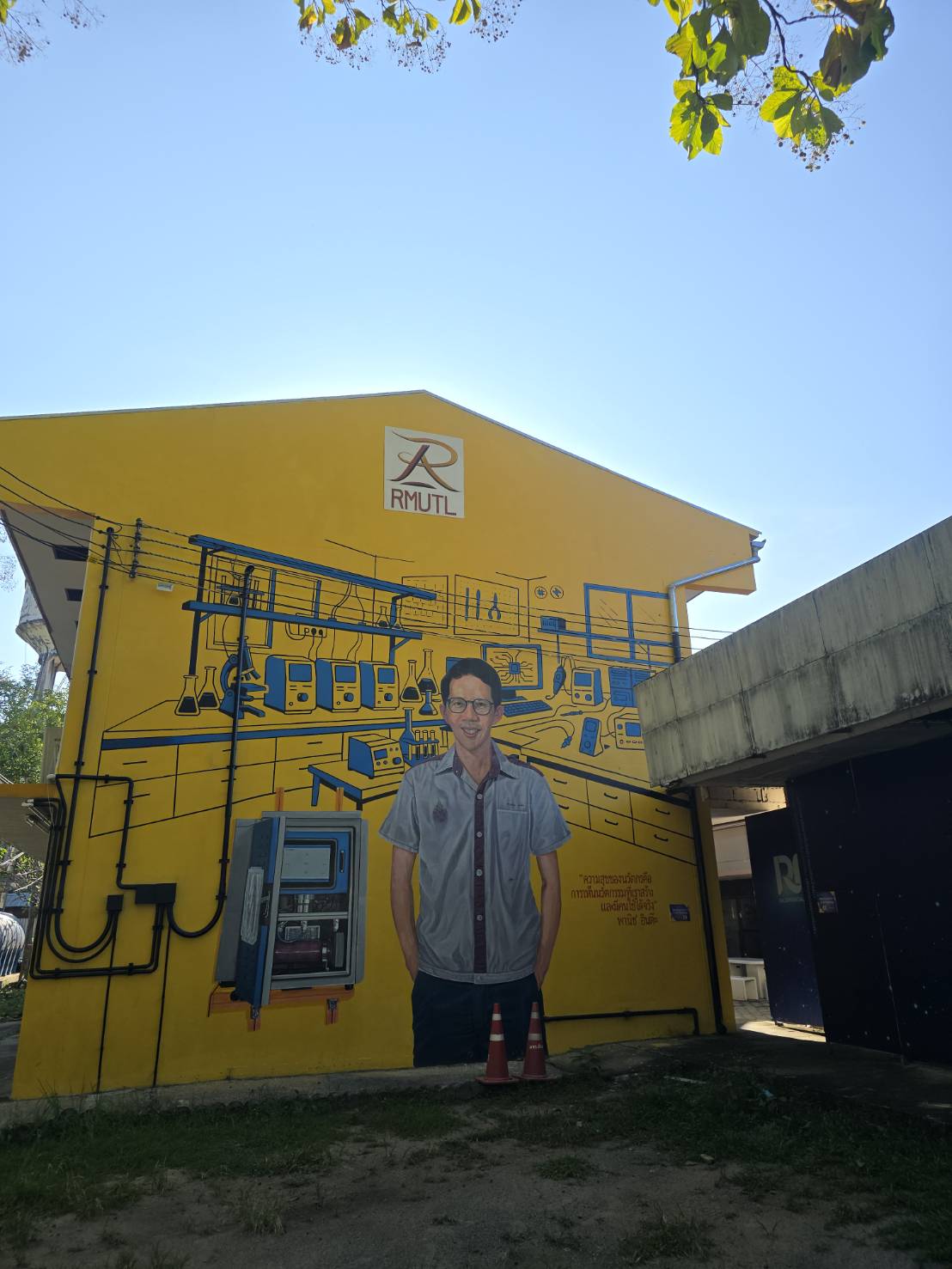
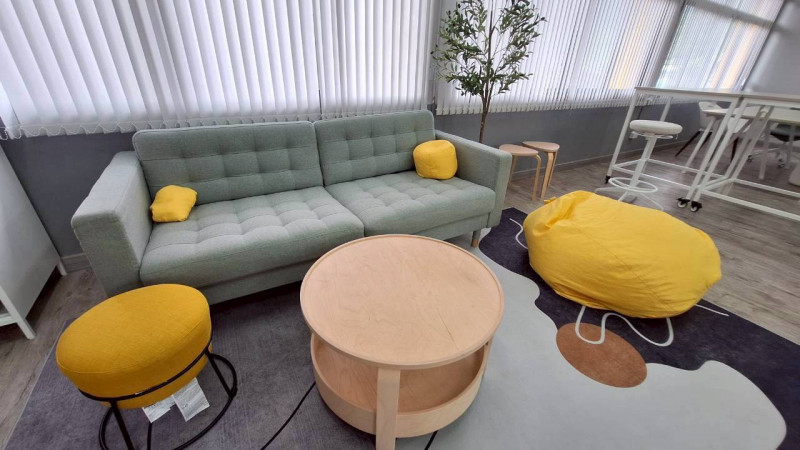
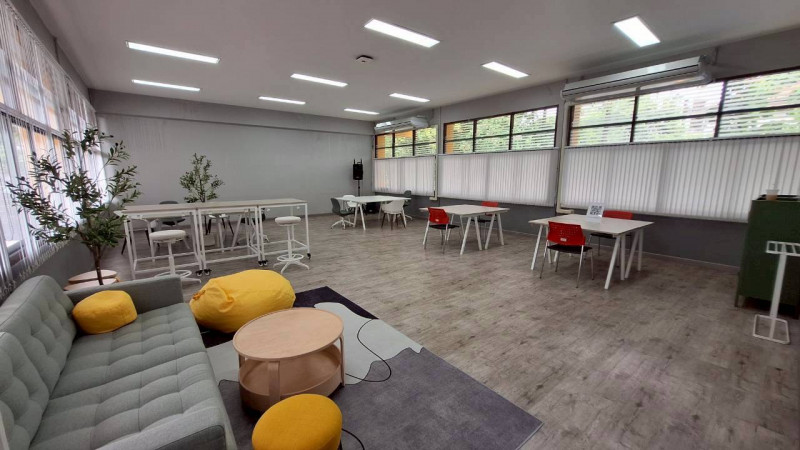
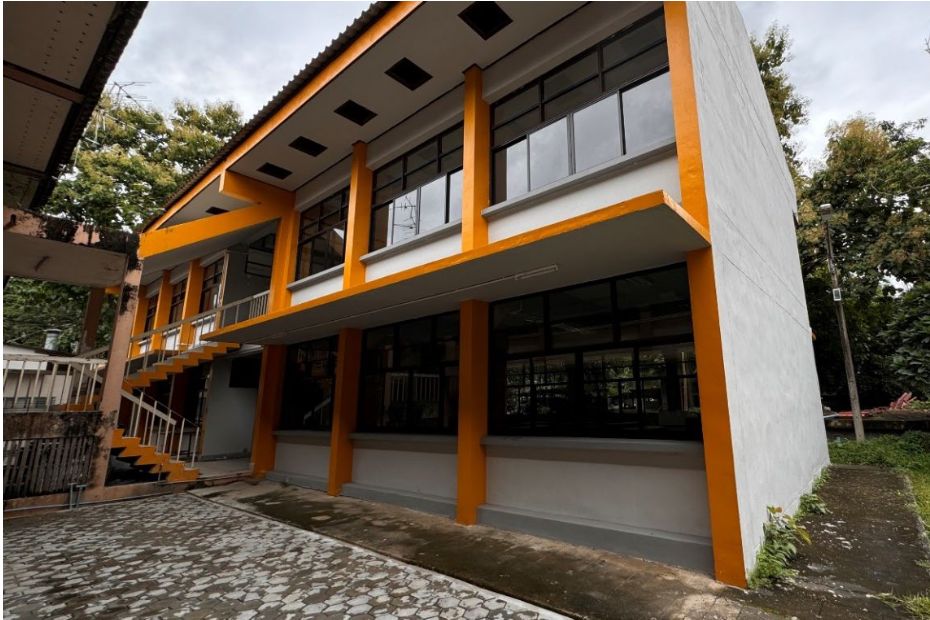
This initiative is part of the national project “System and Mechanism Reform for Innovation and Technology Commercialization,” which enhances the university’s intellectual property management and innovation ecosystem. The project aims to transform underutilized spaces into productive, sustainable work areas aligned with SDG 11.4.9, focusing on cultural and environmental heritage conservation through efficient land use.
The Sustainable Working Space Renovation, under the pillar of Research and Academic Service Reform (USAIL) and led by Dr. Patcharaprakiti, Director of the Research and Development Institute, received an initial budget of 1,073,960 THB, with an additional 2,000,000 THB allocated in 2024. These developments contribute directly to SDG 9 (Industry, Innovation, and Infrastructure) and SDG 8 (Decent Work and Economic Growth) by creating sustainable innovation infrastructure, fostering entrepreneurship, and promoting economic opportunities within RMUTL and the local community.
The reuse of degraded and vacant spaces demonstrates the university’s commitment to brownfield redevelopment, urban revitalization, and sustainable planning in partnership with local authorities across Northern Thailand.
Sources
-
RMUTL SDGs News: Construction of Hor Trai using Sustainable Materials — https://sdgs.rmutl.ac.th/11/construction-hor-trai/
-
RMUTL SDGs News: Temple Development Project 2024 — https://sdgs.rmutl.ac.th/11/temple-development-project-2024/
-
RMUTL SDGs News: Renovation Volunteer Camp 2025 (2568) — https://sdgs.rmutl.ac.th/11/renovation-volunteer-camp-2568/
-
RMUTL SDGs News: Universal Design Buildings at Sri Sangwan Campus — https://sdgs.rmutl.ac.th/4/universal-design-buildings-srisangwan/
-
RMUTL Official News: Civil Engineering Building Renovation Project — https://rmutl.ac.th/news/24781
-
RMUTL Official News: Chom Thong Campus Building Renovation Project — https://www.rmutl.ac.th/news/27712
-
RMUTL SDGs News: Green Building and Innovation Institute Development — https://sdgs.rmutl.ac.th/17/greenbuilding/
-
RMUTL Official Announcement: Policy on Building Renovation and Energy Conservation Construction (B.E. 2568) — April 2025.

